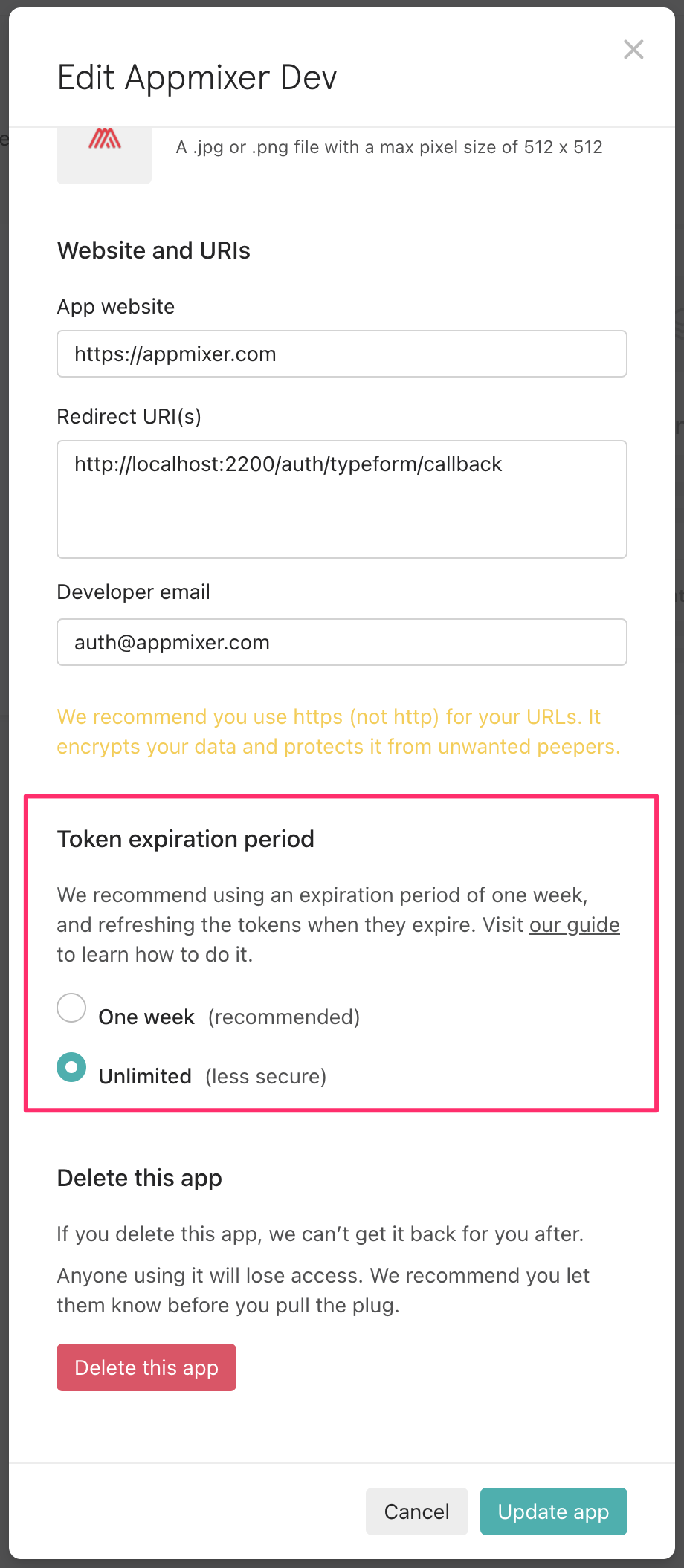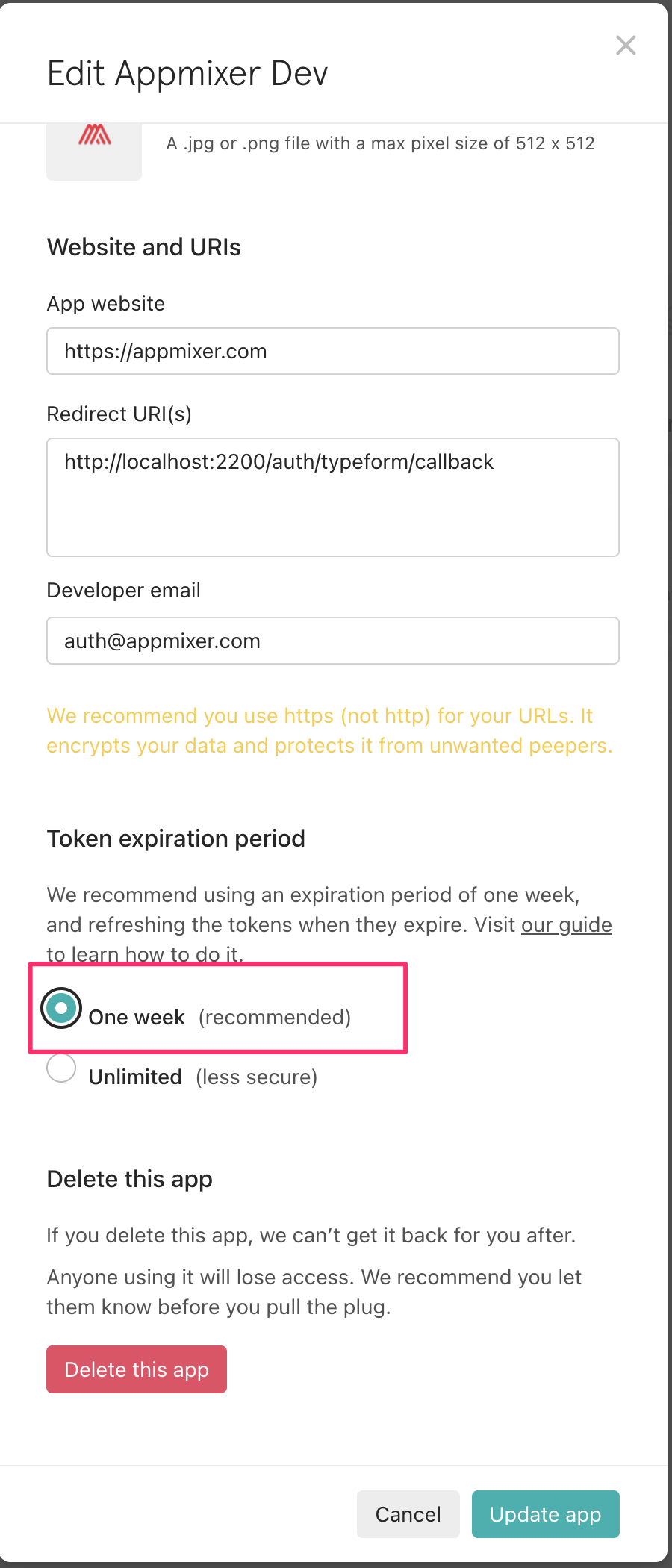Typeform
When creating Typeform Oauth2 application (https://admin.typeform.com/account#/section/apps), you can choose between access tokens that do expire in a week and access tokens that do not expire.

The token expiration is new in Typeform. Appmixer components before version 4.2 cannot handle it.
If you're registering the Oauth application for version 4.2 or newer, you can decide if you want to use tokens that do expire or not. If you decide to go with Unlimited then you don't have to set anything in the Backoffice, it is the default behavior. On the other hand, if you want to use tokens that expire, you have to go to the Backoffice and set the useRefreshToken to true for the appmixer:typeform service.

Then you can use the One Week configuration.

Was this helpful?
